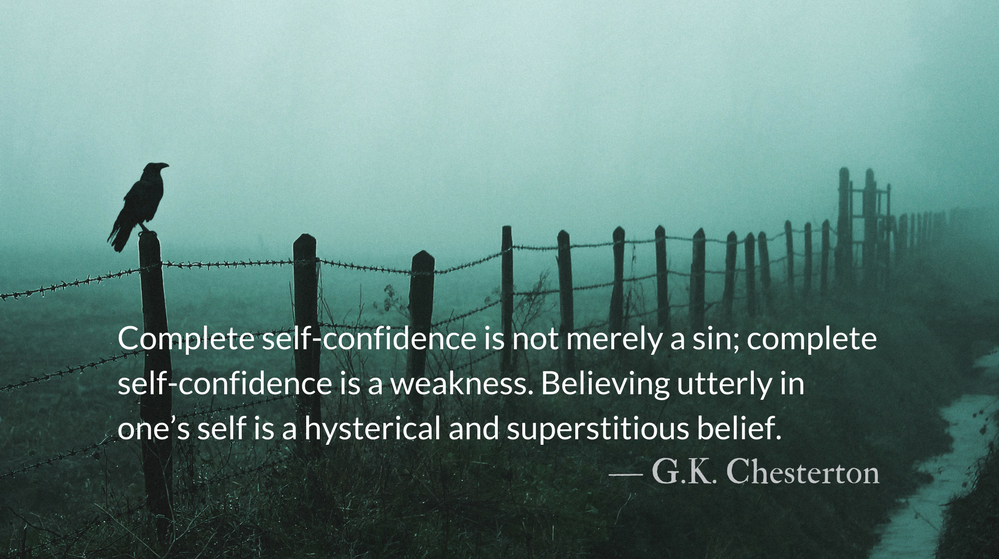Scripture: 1 Corinthians 2.1-5
When I came to you, I did not come with eloquence or human wisdom as I proclaimed to you the testimony about God. For I resolved to know nothing while I was with you except Jesus Christ and him crucified. I came to you in weakness with great fear and trembling. My message and my preaching were not with wise and persuasive words, but with a demonstration of the Spirit’s power, so that your faith might not rest on human wisdom, but on God’s power.
Reflection: Idolatry of Self-Confidence
By John Tillman
If any New Testament author had reason for self-confidence, it was Paul. In other places in scripture, Paul lists his impressive accomplishments. But in this passage he shows what seems to be his standard pattern of operation—complete reliance on God and on the power of the Gospel itself.
Paul’s assertions of ignorance and low-confidence are difficult for us to relate to because in our world the ultimate heresy is to not believe in oneself. Try confessing self-doubt publically and see how quickly you are pounced upon by self-esteem evangelists.
Self-confidence and self-reliance run as extremely strong currents in our culture and we are all swept along in them. It is not a new idea, as this retort from G.K. Chesterton shows.
The publisher said of somebody, “That man will get on; he believes in himself.”
And I remember that as I lifted my head to listen, my eye caught an omnibus on which was written “Hanwell.”
I said to him, “Shall I tell you where the men are who believe most in themselves? For I can tell you. I know of men who believe in themselves more colossally than Napoleon or Caesar. I know where flames the fixed star of certainty and success. I can guide you to the thrones of the Super-men. The men who really believe in themselves are all in lunatic asylums.”
Believing in himself is one of the commonest signs of a rotter. Actors who can’t act believe in themselves; and debtors who won’t pay. It would be much truer to say that a man will certainly fail, because he believes in himself.
Complete self-confidence is not merely a sin; complete self-confidence is a weakness. Believing utterly in one’s self is a hysterical and superstitious belief”
Since Chesterton’s time our culture has only grown more extravagantly in love with the sinful extremes of self-confidence. These cultural currents too often sweep in aspects of out of context Christian theology, coalescing in the hysterical and superstitious quicksand of prosperity gospel teaching.
Only when our confidence in ourselves as god is shaken do we actually reach out to discover that there is a true God in whom we can safely place all our confidence and hope.
May we seek the aid of the Holy Spirit in order to give up idolizing self-confidence in favor of having confidence—having faith—in Him, who alone is capable of fulfilling our hope.
The Refrain for the Morning Lessons
Let not those who hope in you be put to shame through me, Lord God of hosts; let not those who seek you be disgraced because of me. — Psalm 69.7
– From The Divine Hours: Prayers for Springtime by Phyllis Tickle.
Full prayer available online and in print.
Today’s Readings
Job 14 (Listen – 2:23)
1 Corinthians 2 (Listen – 2:26)






